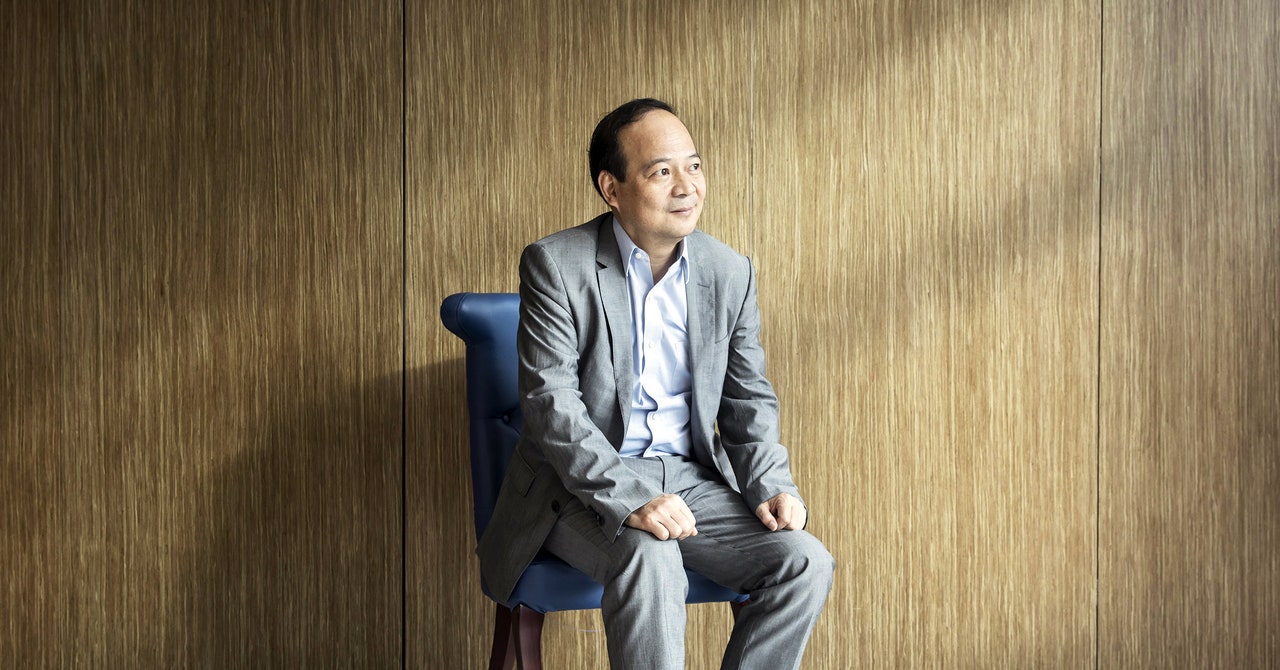the headquarters of battery giant CATL tower over the Chinese coastal city of Ningde. To the untrained eye, the building resembles a huge slide rising from the urban sprawl. It is, in fact, a gigantic monument to the company’s raison d’être: the lithium-ion battery pack.
You may not have heard of CATL, but you have certainly heard of the brands that rely on its batteries. The company supplies more than 30 percent of the world’s EV batteries and counts Tesla, Kia and BMW among its customers. Its founder and chairman, 54-year-old Zeng Yuqun, aka Robin Zeng, has quickly emerged as the industry’s kingmaker. Insiders describe Zeng as smart, direct and even abrasive. Under his leadership, CATL’s valuation has risen to 1.2 trillion Chinese yuan ($179 billion), more than General Motors and Ford combined. Part of that fortune has been built on owning interests in mining projects in China, the Democratic Republic of the Congo and Indonesia, giving CATL a tighter grip on an already tense global battery supply chain.
Such scale gives CATL enormous leverage – and allows the company to be choosy with its contracts and pass on rising commodity prices to its customers. “They pretty much dictate the terms,” said Mark Greeven, professor of innovation and strategy at IMD Business School in Lausanne, Switzerland. CATL is pushing customers for long-term five-year agreements. and he’s reluctant to adapt his batteries to different car manufacturers, he adds.
So far, these decisions have helped Zeng become rich – very rich. He is in 29th place Forbes2022 list of the world’s richest people. On Bloomberg’s 2021 list of the world’s top green billionaires, he is second only to Tesla CEO Elon Musk. Musk may make more headlines, but Zeng has almost as much power.
But Zeng is no Musk. He avoids the spotlight and rarely gives interviews. Insiders point out that Zeng operates in an environment where fame could hinder his business, not help. “In the West, the personality cult style of leadership is valued, encouraged and celebrated. It’s dangerous in China,” said Bill Russo, former head of the Beijing automaker Chrysler’s Northeast Asian venture, which now heads Shanghai-based consultancy Automobility. “You can’t be bigger than Beijing.” Automakers are also becoming wary of how much power CATL has as they look elsewhere for batteries to power their vehicles.
Content
This content can also be viewed on the site from which it originated.
Zeng’s arrival on the EV battery scene goes back to 2010 – and a meeting with Herbert Diess, who was purchasing manager for BMW at the time. Diess, who is now CEO of Volkswagen, had embarked on an international mission to convince companies making batteries for mobile phones to switch to electric cars. He tried European companies, including the German Bosch. But he also approached Zeng, who at the time was running a subsidiary of Japanese electronics company TDK. Diess told the story at an internal meeting in May 2022 and described Zeng’s initial response as dismissive — it was impossible for him, Zeng said, to build such large batteries.
But, so the story goes, Diess’ plea for batteries failed. In 2011, Zeng led a group of Chinese investors to acquire an 85 percent stake in TDK’s EV battery business, which they called CATL. BMW was his first key account. “Diess brought our company into the automotive battery business,” Zeng told Handelsblatt in 2020. “I am grateful to him for that.”
Diess may have inspired CATL to enter the EV market, but over the years, Zeng has built a reputation as a founder who could master both batteries and business. When he bought a US patent for cell phone batteries in the early 2000s, he was working on improving battery design himself, said Lei Xing, former editor of the Beijing-based media outlet. China car review† When BMW agreed to use CATL as its battery supplier, it was Zeng who read the 800 pages of requirements line by line, according to Yunfei Feng, a research associate at IMD Business School.

